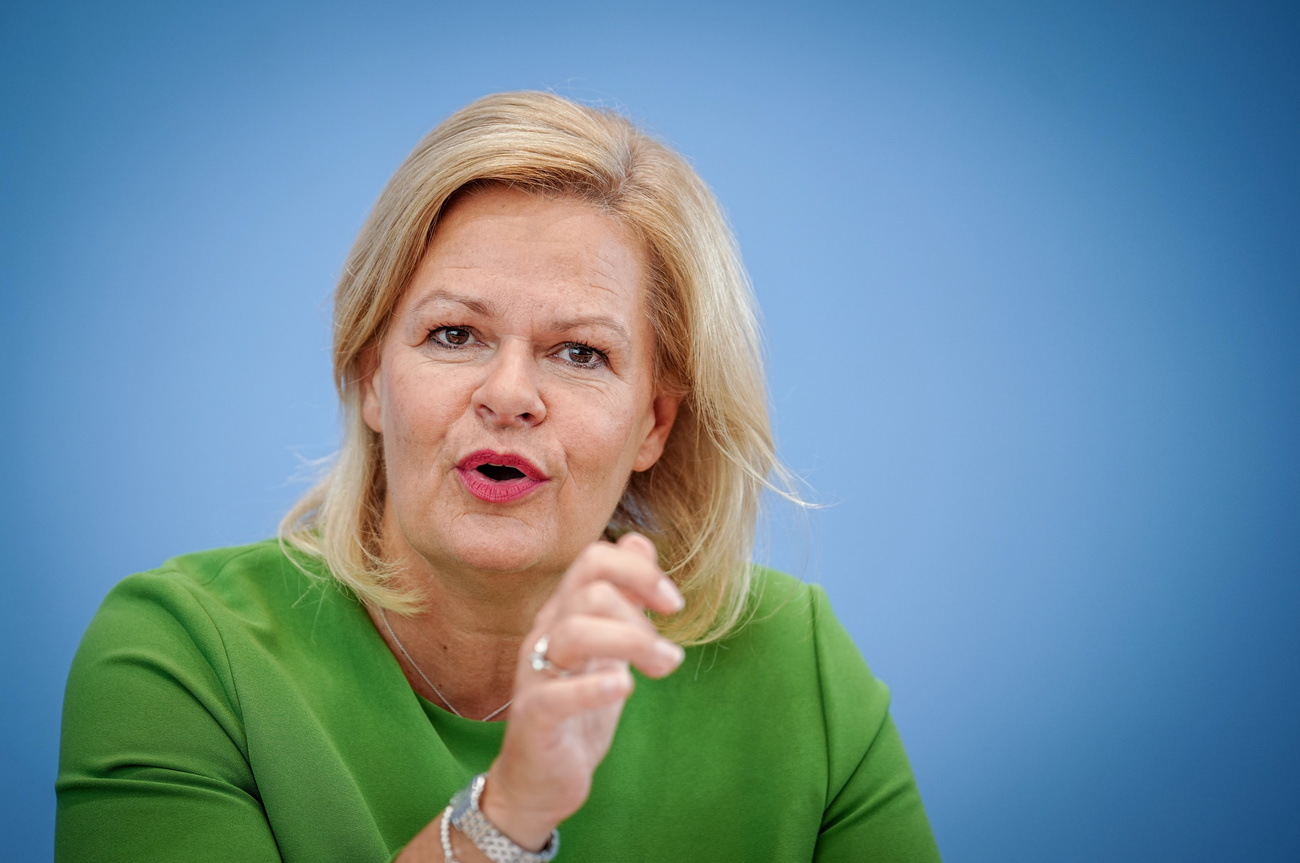
Controls at Swiss border only temporary, says German minister

German Interior Minister Nancy Faeser has defended the border controls introduced with Switzerland, saying it is only a temporary solution.
The controls are primarily about combating smuggling, Faeser told the Swiss News Agency Keystone-SDA on Thursday on the fringes of the meeting of EU interior ministers in Luxembourg. This is because almost every fourth asylum seeker comes to Germany with the help of smugglers.
Faeser said she hoped the situation would improve thanks to the joint EU asylum and migration package and other measures, including stronger external border protection, none of which are yet in force. It would take time, but “this is the only possible solution”, she said.
+ Germany notifies the EU of border controls at the Polish, Czech and Swiss frontiers
Once the measures were implemented, it would be possible to work with open borders again, she said. “That is the goal of all of us. We have not lost sight of that,” Faeser emphasised.
There are no systematic border controls in the Schengen area, to which Switzerland belongs.
Regarding the controls at the borders with Switzerland, she said they were only “partial and adapted to the situation”. She said it was also important to her that cross-border trade and normal border traffic were affected as little as possible. “We have experience with Austria in this. It works very well, and it will also work excellently with Switzerland,” she said.
Border controls have been in place between Austria and Germany for several years.
This news story has been written and carefully fact-checked by an external editorial team. At SWI swissinfo.ch we select the most relevant news for an international audience and use automatic translation tools such as DeepL to translate it into English. Providing you with automatically translated news gives us the time to write more in-depth articles. You can find them here.
If you want to know more about how we work, have a look here, and if you have feedback on this news story please write to english@swissinfo.ch.

In compliance with the JTI standards
More: SWI swissinfo.ch certified by the Journalism Trust Initiative




























You can find an overview of ongoing debates with our journalists here . Please join us!
If you want to start a conversation about a topic raised in this article or want to report factual errors, email us at english@swissinfo.ch.